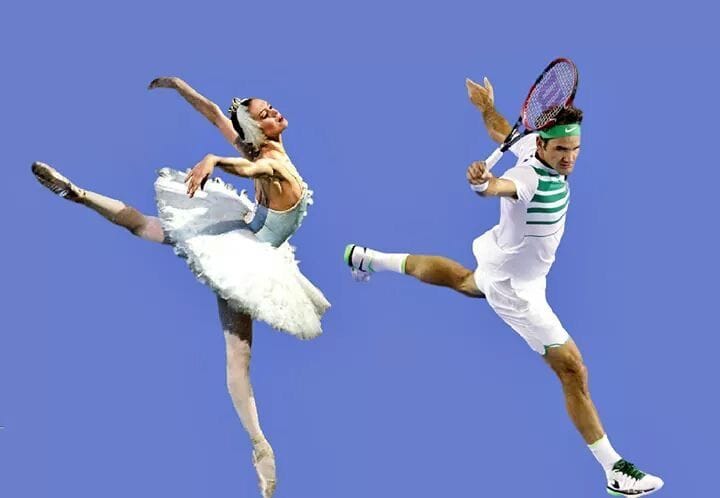The Mental Game: How Inner Focus Drives Success in Sports and Music

I was eight when W. Timothy Gallwey’s ‘The Inner Game of Tennis’ (1974) became a bestseller. Over the years, it became so successful that Gallwey followed it up with the ‘Inner Game’ of everything from golf and skiing to music, work and stress. ‘The Inner Game of Tennis’ is still his seminal work, with over one million copies in print.
As can be seen from the subsequent book titles after it, Gallwey found that the basic principles and the coaching method he devised from the first book could also be applied to many situations, and found himself lecturing more often to business leaders in the U.S. than to sports people. (He is primarily a tennis player, and was captain of the Harvard University tennis team in 1960).
During my England years, I picked up a second-hand copy of ‘The Inner Game of Music’ (1986, co-authored by Gallwey with Barry Green, former principal double-bassist of the Cincinnati Symphony Orchestra) but had to abandon reading it, most probably because I had to move from one hospital accommodation to another. It lay buried in one of many sealed boxes that accompanied me on the peregrinations that Great Britain’s NHS (National Health Service) demanded of me. Even after our return to Goa in 2008, Gallwey’s book remained so imprisoned until fairly recently.
Self-help and self-improvement books and methods, like fashion, have their heyday and then get replaced by the next new fad. But there is much to learn from the concept of the ‘inner game.’
In the introduction to ‘The Inner Game of Music’, Gallwey writes that Green, quite impressed with the results he had achieved after reading ‘Inner skiing’ (1977), wanted to write a book applying the methodology to music. “I could write a book on the Inner Game of Music by just changing a few key words in any of your other books, green told Gallwey. “It’s all the same magic; it will work anywhere.”
Ages ago, in 2012, I had written an article about music and football in particular, and was now pleasantly surprised to find Gallwey make similar points about sports in general and music in his book, although he elaborates even further: “People ‘play’ sports and ‘play’ music, yet both involve hard work and discipline. Both are forms of self-expression which require a balance of spontaneity and structure, technique and inspiration. Both demand a degree of mastery over the human body, and yield immediately apparent results which can five feedback to the performer.”
“Since both sports and music are commonly performed in front of an audience, they also provide an opportunity for sharing the enjoyment of excellence, as well as the experience of pleasures, fears and the excitement of ego involvement.”
“The same mechanism for heightened performance is at work in both sports and music, where over-teaching or over-control can lead to fear and self-doubt.”
“The point of the Inner Game of sports or music is always the same – to reduce mental interferences that inhibit the full expression of human potential.”
This column was prompted by the heart-melting scene on 8 July 2024 of Novak Djokovic, currently world number 2 in ATP (Association of Tennis Professionals) ranking, ‘playing’ his tennis racquet like a violin to serenade his adorable six-year-old giggling daughter Tara at the end of the quarter-final Wimbledon match, beating Holger Rune (Denmark) in straight sets.
Djokovic is not everyone’s favourite (he’s mine, though) especially after the so-called “Australian visa controversy,” but that cannot be an excuse for unsporting behaviour from fans, or anyone for that matter.
What reserves of mental concentration must it have taken for him to focus on his game, on Centre Court, one of the most prestigious ‘altars’ of tennis in the world, in front of several thousands, while a section of the crowd was doing their best to rattle him.
I don’t know if Djokovic has ever read Gallwey’s ‘Inner Game of Tennis’, but whether he did or not, that day, he had admirable control over both his ‘inner’ and ‘outer’ game.
He gave a fitting parting shot to those disrespectful fans (who bellowed “Ruuuune” throughout the evening in a deep, elongated chant that sounded similar to booing) in his speech at the end, wishing them a “gooood night!”
Watching that match reminded me of one fundamental difference that does exist (I hope) between sports and music. At a music performance or recital, there is first of all no ‘competition’ between two sides, unlike tennis or chess or football, where one side is the ‘winner’ and the other, sadly, by default, not.
It also called to mind an interview on The Strad website in 2016 with virtuoso violinist Hilary Hahn. When she was asked how she dealt with ‘performance nerves,’ she gave a lot of valuable insights from her own personal experience, even how it can actually be a good thing! But she also made this very important point: “One thing just to remember is, when you’re performing, people aren’t judging you. They’re not there to see you fail. And if they are, they shouldn’t be there. It’s no-one’s business to hope that you’ll do a bad job. People are there because they want to see you do well. They’re there to support, they’re there because they want to hear a good performance.”
I remember listening to that interview just before I was meant to perform in public after quite a while, and it gave me a lot of calm and encouragement. You could say it helped my ‘inner game.’
Back to tennis, I was reading up on Canadian player Bianca Andreescu, who made it to Round 3 of Wimbledon 2024, where she lost to the effervescent Italian Jasmine Paolini.
She has been quite candid about needing to take a temporary break from the sport to gain some perspective. She realised that her mental well-being and sense of self-worth were too tide up in the results of her matches.
She had a good run as a young athlete. “And then when I started losing, I didn’t know what was happening in a way”, she told The Guardian last year. “I didn’t know how to deal with it. I was shocked, which was really weird because people are losing every single week in tennis. And now I know how it feels. I’ve been through it and I’m glad that I did because I was able to realise that if I want to have a long career, I can’t continue like that.”
“You’re alone on court. It’s like a lonely, lonely journey.”
Singles tennis is perhaps the ultimate example of being utterly alone, even when surrounded by hundreds or thousands, facing an adversary, gladiator-style, on-court, but sometimes (as happened to Djokovic) facing hostility off-court too, whether from the spectator stands or from the media.
But in a sense, when it comes down to it, we’re all “alone” in whatever we do. All we can do is align our ‘inner’ and ‘outer’ game as best we can to strive to achieve “the fullest expression of our human potential.”
This article first appeared in The Navhind Times, Goa, India.





